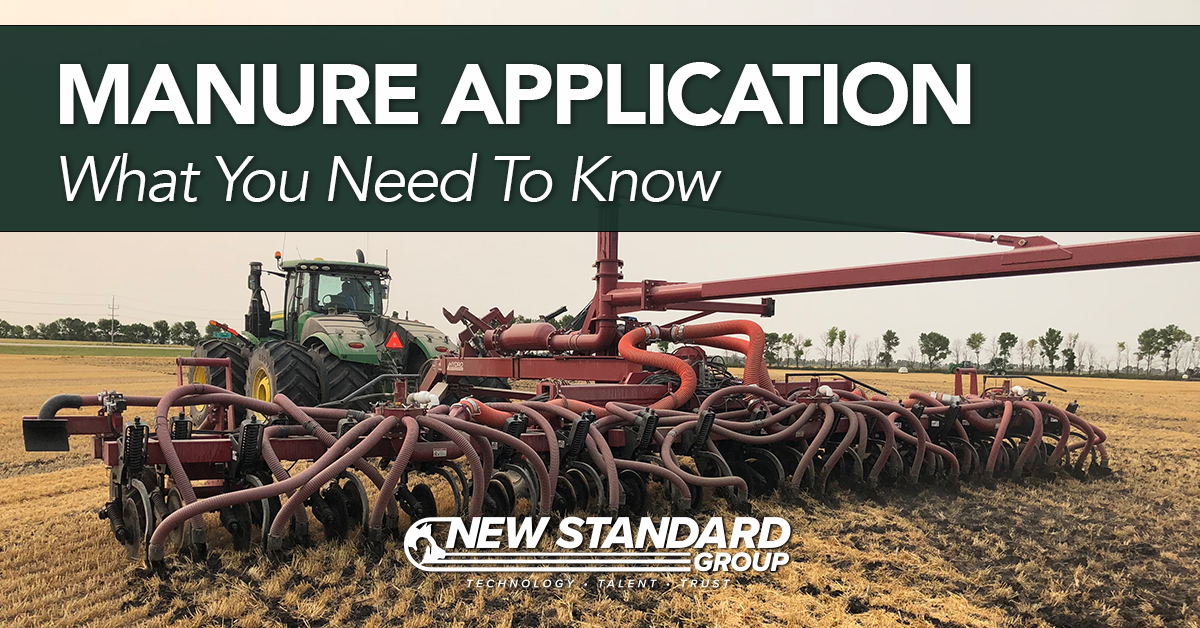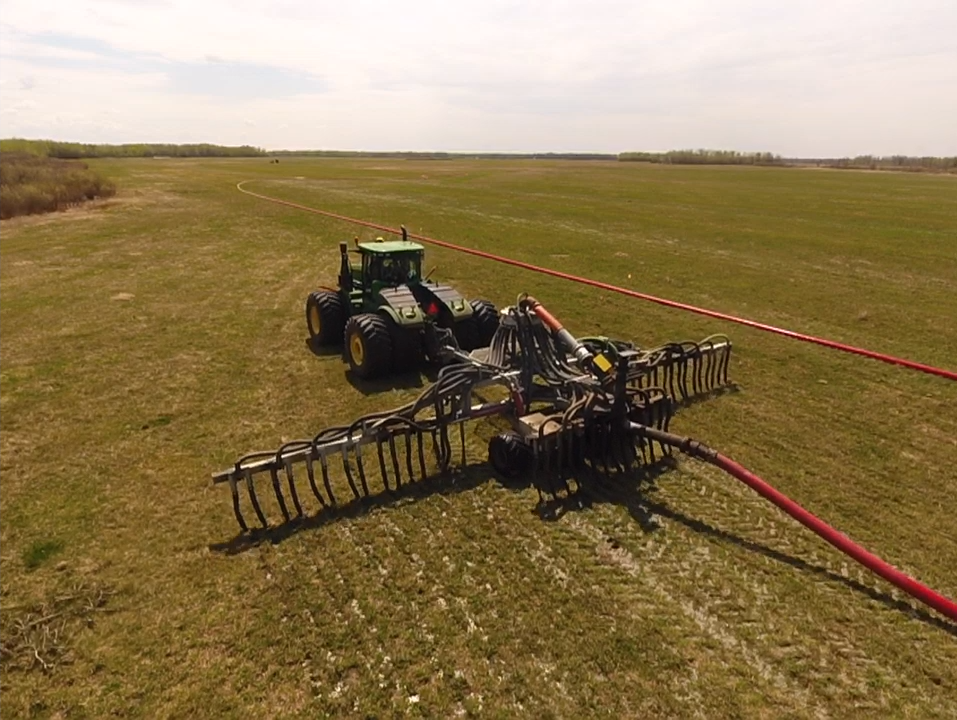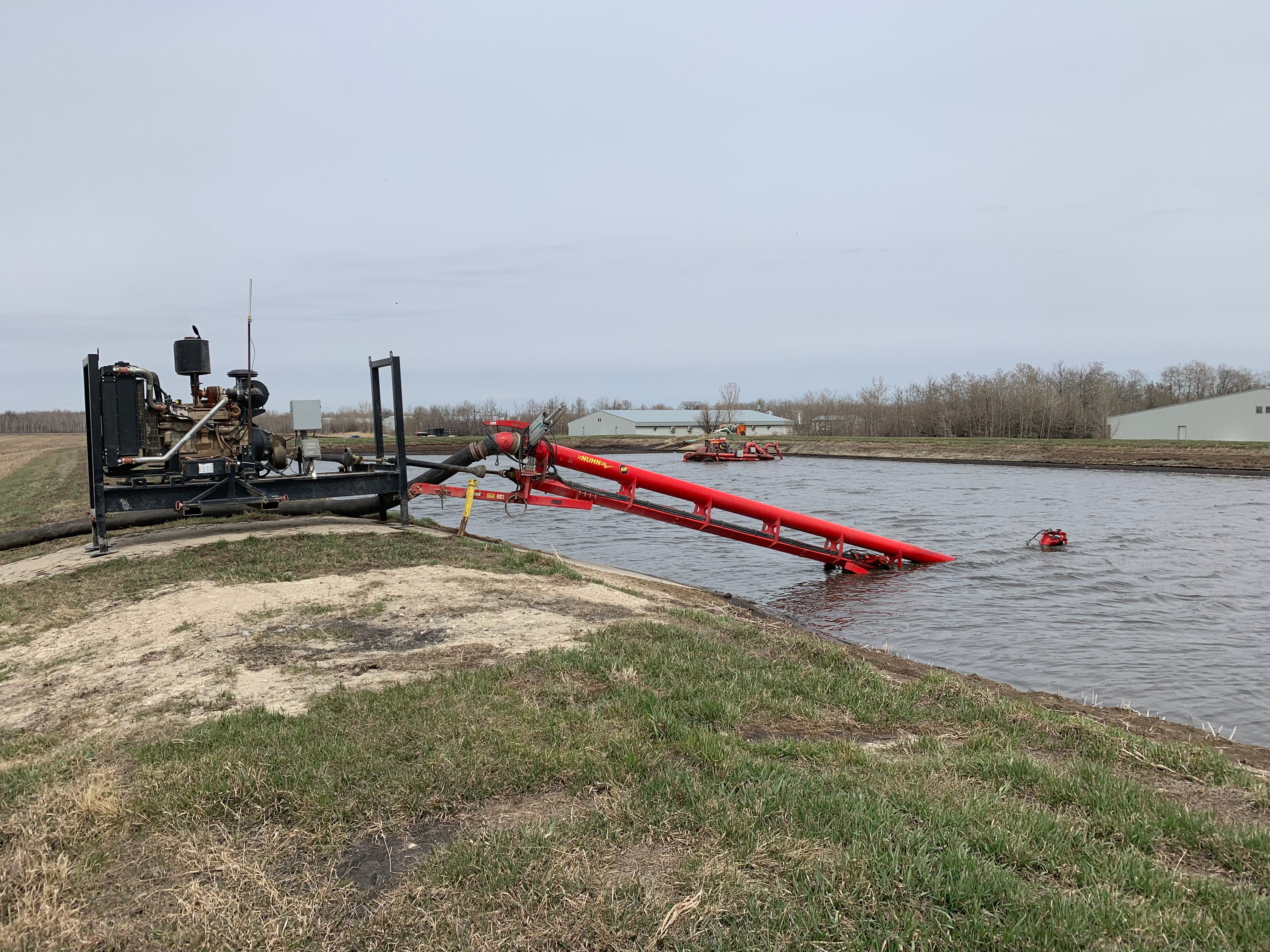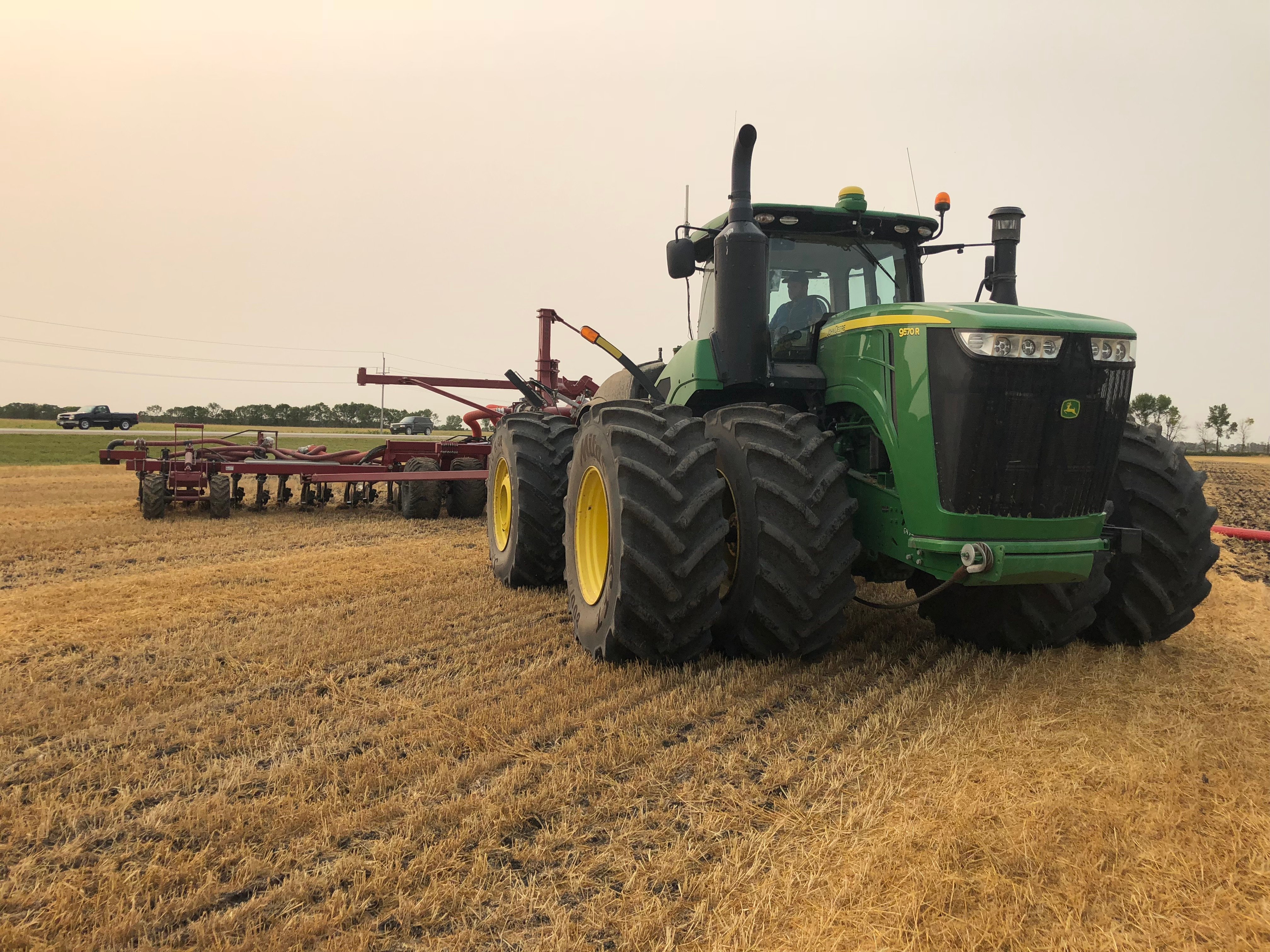
Today’s topic is manure management.
Manure management isn’t a common topic here at New Standard; however, we are now in partnership with Penner Farm Service, so this is one more thing we can offer.
We met with Penner Farms Doug Redekop to gain some valuable insight and knowledge on managing one of your farm’s most valuable assets, shit.
Doug has been involved in the nutrient management business for thirty years and is a wealth of knowledge on this topic. Doug is based out of the Penner Manitoba office, and along with selling manure equipment, he also has experience using the equipment he sells thru their Cooperative, Precision Pumping Ltd.
Now let’s get down to the business of number two.
The Setup
Here is a typical manure application situation he runs into. Hog farmer Fred has been applying his nutrients with the help of a custom pumping company for the past few years, and he feels the cost is getting out of hand. As a result, Fred is looking to bring these services in-house. Where does Fred start? This is the scenario we discussed with Doug.

The Questions: Where do we begin?
What type of livestock manure are we dealing with?
Today, many farms are species-specific, while some may also have dairy and other livestock. Please remember that hog and dairy manure are different in how they separate and have different parameters for handling them. Also, remember that the added element of dairy bedding, and what type of bedding, can further complicate the matter. The bottom line is not all shit is the same, and the more we know about your operation going in, the fewer surprises down the road.
What storage type, size, and design do you have?
Do you have above-ground, earthen, single, or multiple cells? If earthen, is it clay or poly-lined? These details are important to establish. Your answer to these questions will impact your future decisions.
Most storage is designed for either 240 or 400 days of storage. 240-day storages appear to be a great place to save costs during construction; however, this can create some unique challenges. For example, with 240-day storage, you’ll need to apply at least twice per year. The 400-day option allows for a single application each year.
Multi-Cell storage may allow you to non-mechanically separate valuable organic nitrogen and phosphorus.
How many gallons to you apply annually?
When thinking about how many gallons you need to apply annually, there are many factors to consider. The first is time; each gallon pumped takes time. How much time do you want to spend doing this job? Another thing to consider is the weather. Typically on open storage, evaporation cancels out precipitation. In wet years volume grows, and in drought years, the volume shrinks. Combine drought with a reduction in yields, and suddenly the number of acres required to apply may change dramatically.
 When do you need to apply?
When do you need to apply?
Spring? Most farms have worked hard to prepare a seedbed for planting and don’t want it ruined by applying manure in spring.
Summer? Not an option for everyone unless you have alfalfa or grasses to apply to? Is in crop an undiscovered opportunity?
Fall? Post-harvest is certainly the most popular option.
Winter? The potential for runoff and losses of valuable nutrients is high. Environment/Conservation in some areas will not allow it!
How far are the fields that need an application?
It is critical to consider the application distance when designing a pumping system. Distance takes hose, pumps, reels, and time. This takes $.
Now is an opportune time to bring in an experienced agronomist who understands manure’s value to help review your entire operation.
They will do the following:
- Take inventory of all on-farm nutrients.
- Review all cropping rotations along with current soil test results.
- Consider distance and how it impacts the value of manure.
- Develop a strategy that is both cost-effective and efficient.
Other factors to consider:
- Culverts for road crossings
- Permanent obstacles like rail tracks, highways,
and watercourses - Distance to neighbors
Once you have taken the time to answer these questions, you will be able to figure out which equipment suits your current and future needs the best.
In Manitoba, 90% of all applications occur with a dragline, 10% completed with on-road spreaders.
Trucking manure is usually most effective when dealing with distances beyond 5 miles,
Both techniques come with their issues, communication, labor, fuel costs, environmental risks, etc.
What crops are in your rotation?
Manure is a valuable resource that deserves proper thought before application. What crop rotation will best utilize this resource?
This is a great time to lean on your agronomist. Having an agronomist that is pro-natural fertilizer can be beneficial in getting the most out of your manure.
 How much are you willing to invest?
How much are you willing to invest?
Please view purchasing this equipment as a long-term investment. Your decision to purchase should not be based just on saving money. With this investment, you will be able to best decide when and how this valuable nutrient is applied.
So What’s Next?
This article was not meant to answer all questions. Instead, it was meant to stimulate thought and discussion.
We hope these questions have helped you spark some of your own and put you on the right path if you’re contemplating adding self-application to your farm.
We highly recommend bringing in the pros when you’re pondering these ideas. We’ve been able to help farms add efficiencies, cut costs, and more.
If and when you have questions about anything manure-related, please reach out. We’ll be happy to talk through your ideas and questions.
Meet Doug
Doug has worked for Penner Farm Services since 2006, and specializes in manure handling equipment. Graduating with a Diploma in Agriculture from the University of Manitoba, he spent 14 years in the hog production industry and has considerable experience in feed production, barn construction, and market development. He also brings 25 years of manure application experience to Penner Farm Services. In his spare time, Doug enjoys traveling with his wife and son.





